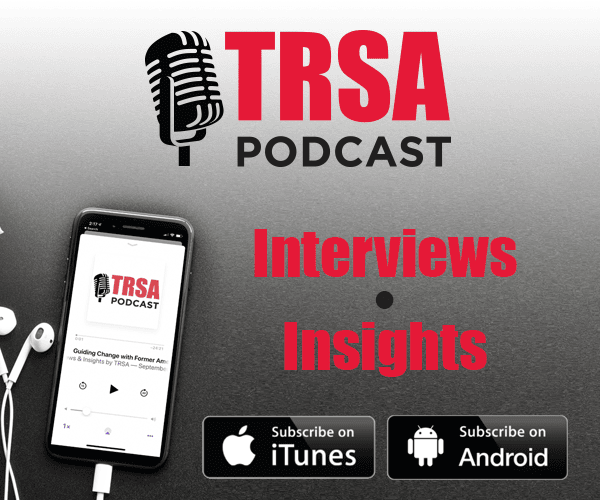Hello TRSA members!
As we look ahead to this month’s TRSA Annual Conference, now is an ideal time to reflect on the challenges and opportunities facing our industry. One of the most pressing issues today is resource management—how we optimize critical energy, water, and other inputs to ensure operational efficiency while addressing environmental concerns.
My experience in this industry has reinforced the idea that sustainability is not just about compliance—it’s about competitiveness. Companies that proactively embrace resource-management strategies are better positioned to adapt to regulatory changes, manage costs and meet the evolving expectations of customers and stakeholders. Through TRSA’s advocacy efforts, educational programs and certification initiatives, we are working to ensure that our members remain at the forefront of industry best practices.
Sustainability and cost containment are not opposing forces; they are interconnected strategies that drive business success.
Across the linen, uniform, and facility services industry, our member companies are navigating ongoing regulatory pressures, complicated by the introduction of new tariffs on imported parts, equipment and textiles. These come on top of already rising utility costs, made more difficult with customer expectations that we provide responsible operations and services without passing along these increasing costs to them. TRSA recognizes these challenges and is committed to providing our members with the tools and programs necessary to manage resources effectively, while maintaining profitability and service excellence.
A prime example is TRSA’s Clean Green Certification, which validates a company’s commitment to sustainable best practices in water and energy conservation, waste reduction and responsible chemical usage. Certified laundries demonstrate that their operations meet high-efficiency standards, helping them not only to reduce costs but also to strengthen their environmental stewardship. By investing in energy-efficient equipment, heat-reclamation systems, and water-recycling technologies, many of our members are achieving significant reductions in resource consumption, thereby reducing production costs and improving overall plant productivity.
Another aspect of resource management is the expansion of reusable textile solutions. TRSA has long championed the advantages of reusable linens, uniforms and personal protective equipment (PPE) over waste-generating landfill alternatives. Not only do our industry’s reusable products reduce the volume of garbage generated by our customers, but they also offer cost-saving solutions to our customers. The healthcare sector, in particular, has seen growing momentum in this space, with TRSA playing a key role in advocating for policies that encourage greater adoption of reusable PPE to ensure supply-chain resilience and long-term sustainability.
Operational efficiency is also deeply connected to workforce development. TRSA’s Executive Management Institute (EMI) equips industry professionals with the knowledge and leadership skills they need to drive process improvements and implement innovative resource-management strategies. By investing in training and education, we empower the next generation of industry leaders to find creative solutions that balance sustainability with operational success.
TRSA events, such as the Annual Conference at the Hyatt Regency Indian Wells Resort & Villas, offer member’s valuable opportunities for discussions, workshops, and networking that can help drive innovation in resource management and environmental responsibility. By exchanging insights and best practices, we can learn from one another and continue to enhance our operations, reduce our environmental footprint, and build a more sustainable future for our industry.
Together, we have the power to make sustainability a catalyst for both operational excellence and long-term success. Let’s embrace this opportunity to lead by example and shape a stronger, more resilient industry for the years ahead. TS
Categories
Magazine Article Type
Department, Leadership Voice
Starting Page
12





